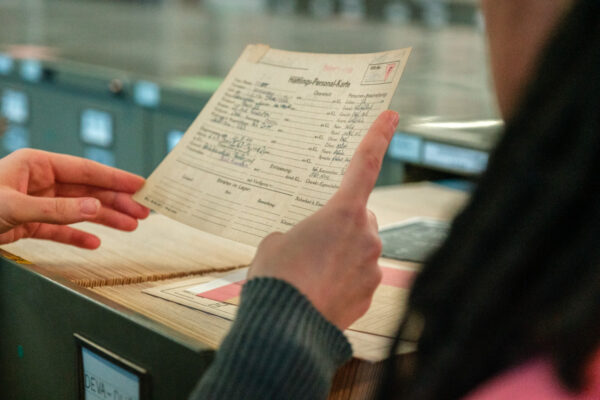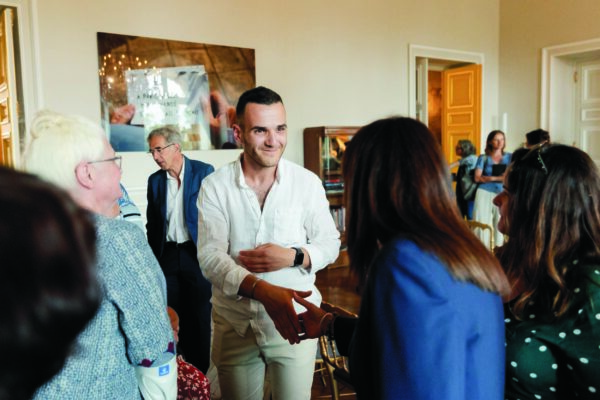Rise in interest in info about Nazi victims
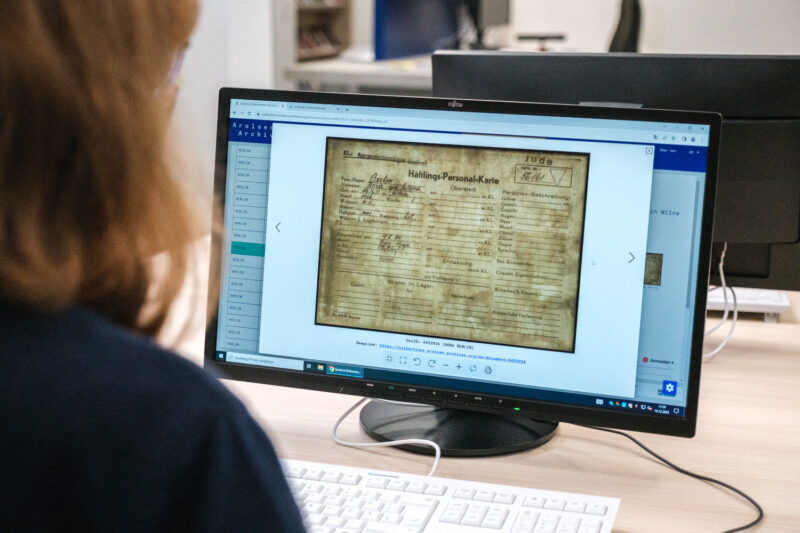
The interest shown by relatives and subsequent generations in obtaining information about victims of Nazi persecution and their fates has increased dramatically over the past year. In 2023, the Arolsen Archives received more than 20,000 inquiries about over 28,000 people – a good 30 percent more than in the previous year. The online archive saw an even greater increase of over 43 percent with around 680,000 users searching the database.
The majority of tracing inquiries were submitted by family members (79 percent), researchers (11 percent), and people with an interest in history (6.5 percent). Almost half came from Germany, Poland, and France – followed by Italy and Israel. The Arolsen Archives were able to provide information and documents in almost 60 percent of cases. As digitization continues, it becomes easier to carry out research because the archival collections can be searched faster and more effectively. This is partly due to the success of the #everynamecounts crowdsourcing initiative, which encourages volunteers to transcribe names and data from the documents.
Poignant inquiries from survivors of Nazi persecution
To this day, the Arolsen Archives receive poignant inquiries from survivors who are very advanced in years. One example is the inquiry submitted by 99-year-old Israeli Dan Hadani – the only member of his family to survive the Holocaust – who asked the archive to search for information about his relatives. The archive contains documents relating to his sister Sabina, who was probably murdered by the Nazis in January 1945 on a death march.
More personal belongings returned than ever before
Thanks to intensive research and the increasing engagement of volunteers, the Arolsen Archives were able to hand over 180 envelopes containing personal belongings to the families of former concentration camp prisoners last year – more than ever before (2021: 95, 2022: 84). When these objects are returned, it frequently leads to the discovery of previously unknown information about people’s lives. The family of Algerian man Rabia Boucif is a case in point. For almost 80 years, his relatives suspected that he had abandoned his wife and eight children. Only when his pocket watch was returned did they learn that Rabia had been arrested and murdered by the Nazis. Since 2016, the Arolsen Archives have returned more than 850 envelopes containing jewelry, watches, photos, and papers to the families of persecutees.
Half-siblings brought together in four cases
One of the main tasks of the Arolsen Archives from very early on was to reunite families who had been separated as a result of Nazi persecution. Families continue to be reunited today, but only in a few instances each year – and the people concerned are often not closely related. But in 2023, four sets of half-siblings found each other through the work of the Arolsen Archives. They included two daughters of a concentration camp survivor, one of whom was born in Frankfurt am Main in 1947 while the other was born in the USA in 1960.
In 2023, the Arolsen Archives received more than 20,000 inquiries about over 28,000 people.
Photo credits: Arolsen Archives
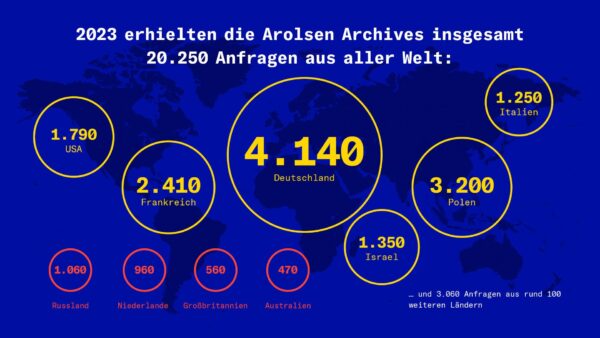
The online archive saw an even greater increase of over 43 percent with around 680,000 users searching the database.
Photo credits: Arolsen Archives
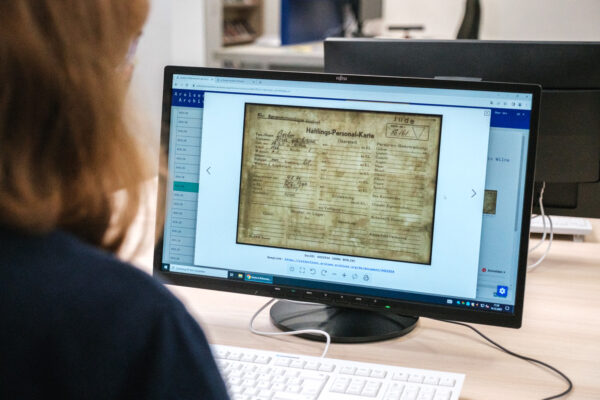
As digitization continues, it becomes easier to carry out research because the archival collections can be searched faster and more effectively.
Photo credits: Arolsen Archives
